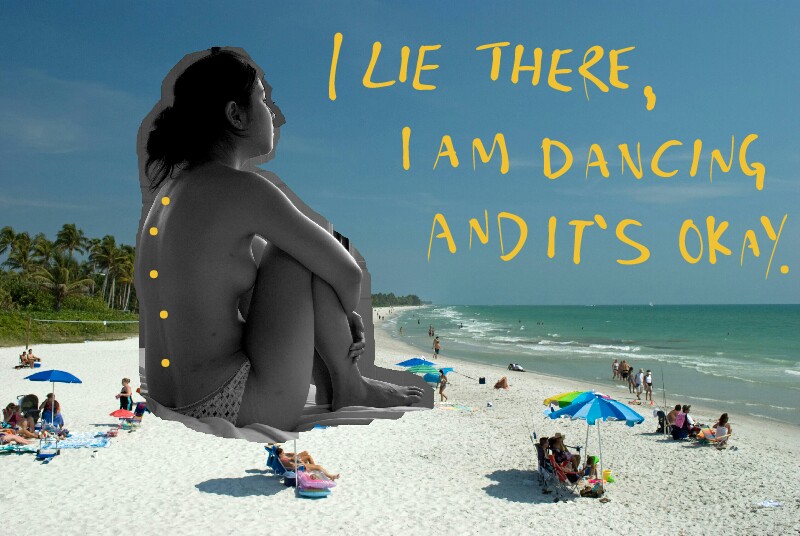Loneliness is loud: I lie there, I am dancing and it’s okay review
“Loneliness is not quiet, loneliness is loud.”
From the moment Eugenia emerges from amidst the set, crawling out from underneath a pile of clothing, she tries to make a connection with you. This play is undoubtedly about loneliness and isolation, but it is also about this one specific connection that keeps our protagonist going: the one with the audience. Though she works as an immigration officer and lives alone, Eugenia, for these forty minutes, at least has us to entertain, to distract from her loneliness. She forges this connection through a celebration of song, dance, stories and light that pepper the performance. Though her stage companions are cardboard boxes instead of other humans, at least we are there to help her build them, as the audience are asked to give her pieces of hair, and eyes, and mouths so that we can help to build her some ersatz companions.
By the end of the performance, she has you up on your feet, dancing to Whitney Houston, on stage with her no less, and you want to do it
After a vocal and guitar performance at the start of the show, which includes lyrics that persist in theme throughout the performance: “I am dancing. It’s okay. Dance with me”, it is for all intents and purposes, a one-woman show. The performance is not only carried out but made to burst at its seems with light and joy by Yifei Painter, who turns the scary and intimidating space of a theatre into a comforting home for the audience. By the end of the performance, she has you up on your feet, dancing to Whitney Houston, on stage with her no less, and you want to do it. You want to make her feel a little less lonely, for those three minutes. You want to show her that you feel loneliness too – you want to dance with somebody who loves you, just as much as she does.
Apart from these intervals of song and dance, the writing itself is an emotional voyage. A standout point in Ang Kia Yee’s piece is when Eugenia is admitting her isolation, letting it take over her for a moment, and tells us what it feels like. She tells us it is like folding a piece of paper over and over, but the paper does not get too thick to stop folding, it just gets smaller and smaller until the paper disappears. This is a wonderful articulation of the tedium of loneliness, how even objects that you adorn with life – such as a piece of paper, or those cardboard boxes – fade into nothing in the end. There is no replacement for human companionship.
The performance makes you want to hug your loved ones, your friends. Be thankful for what you have, and the people you have around you
The performance is one that leaves you feeling light and thankful. It is a recognition of the loneliness in the world, and it makes you empathise with Eugenia. But, in the end, it just makes you happy. It makes you want to hug your loved ones, your friends. Be thankful for what you have, and the people you have around you. And it makes you want to write about those joys, too.

Comments